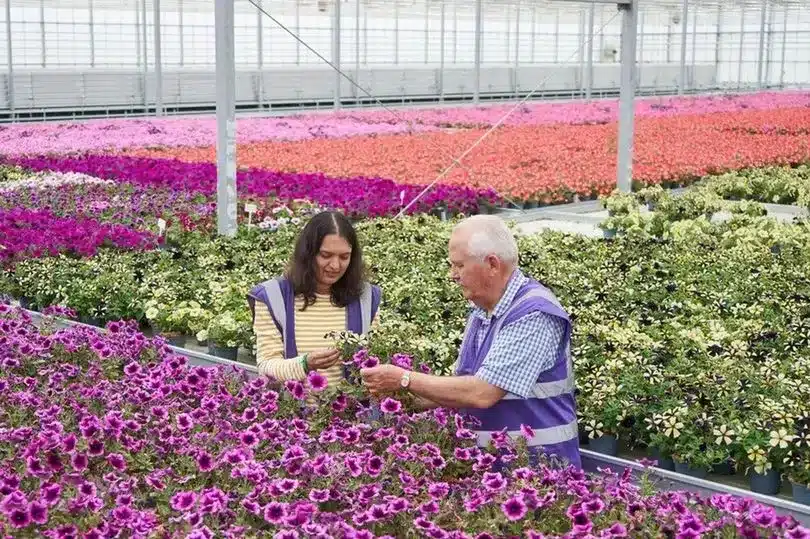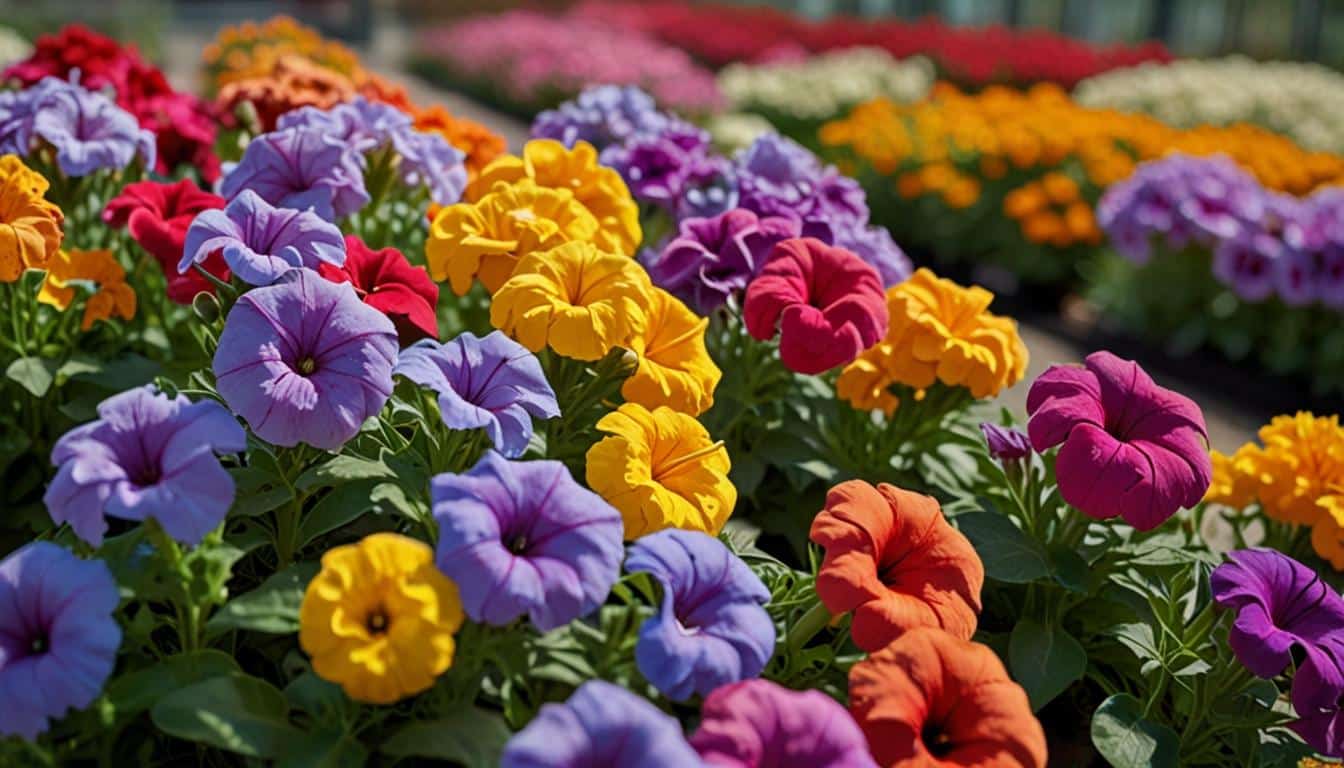Unilever, the multinational consumer goods company known for popular brands like Dove and Lynx, has embarked on an innovative initiative to incorporate unwanted plants and flowers into the production of fragrances for their products.
This pilot project, aimed at making cost-effective and environmentally sustainable ingredients, collaborates with scientists from the University of Nottingham and Bridge Farm Group based in Spalding, Lincolnshire.
The initiative involves extracting essential oils from surplus petunias, roses, and marigolds stored in Bridge Farm’s expansive 60-acre greenhouse. Bridge Farm Group, which supplies 90 million plants to UK retailers annually, encounters significant wastage due to fluctuations in demand and quality issues. By extending the lifespan of unsold plants within the greenhouse, the group aims to provide raw material for Unilever’s laboratory processes.
Scientists are leveraging an enhanced version of the Soxhlet extraction method, a conventional technique for extracting essential oils. This updated method integrates ultrasonication, which uses soundwaves to break down plant cell walls, resulting in more efficient extraction of oils. The revised process is noted to be 40% faster than the traditional method, taking only about 20 minutes to complete.

Ray Marriott, chief scientific officer at Bridge Farm Group, and Parimala Shivaprasad, assistant professor at the University of Nottingham, selecting unwanted multi-coloured petunias in Bridge Farm Group’s 60-acre greenhouse from which scientists will extract essential oils
Subscribe
Sign-up to receive our newsletter
Neil Parry, Unilever’s head of biotechnology, underscored the significance of fragrances in consumer products. “Fragrance is an incredibly important part of our experience when we use products in our homes or on our bodies. Using the latest in biotech and biosourcing principles, we see huge potential to create a circular economy for plants by extracting valuable ingredients and creating a diverse selection of new and sustainable fragrances,” Parry explained.
Parimala Shivaprasad, an assistant professor at the University of Nottingham, emphasised the project’s aim to make everyday products more sustainable. “Through our collaboration with Unilever and Bridge Farm Group, we’re aiming to test the feasibility of using flower essential oils in fragrances to further decarbonise everyday products,” she explained. Shivaprasad added that the university’s labs are focused on developing energy-efficient extraction methods and enzyme-based modifications while also appraising the practicality and cost-effectiveness of using plant waste as a raw material.
Previous research by the University of Nottingham indicates that using plant waste to derive fragrant oils can potentially reduce dependence on petrochemical-derived substances. This aligns with broader goals of reducing emissions and advancing sustainable ingredient sourcing.
Additionally, Unilever is exploring the possibility of extracting other high-value compounds from these unwanted plants, such as terpenes, lactones, and ethers, which have various applications in both home care and personal care products. They are also looking into complex sugars that could be used for textile care in cleaning products and for neutralising odours in personal care products.
Ray Marriott, the chief scientific officer at Bridge Farm Group, lauded the collaborative effort, emphasizing the environmental and economic benefits of repurposing plant waste. “Finding multiple uses for farm waste is crucial for sustainable ingredient and product sourcing. Plants that don’t make the grade still have valuable materials with functional benefits and could reduce our impact on the environment,” he said.





